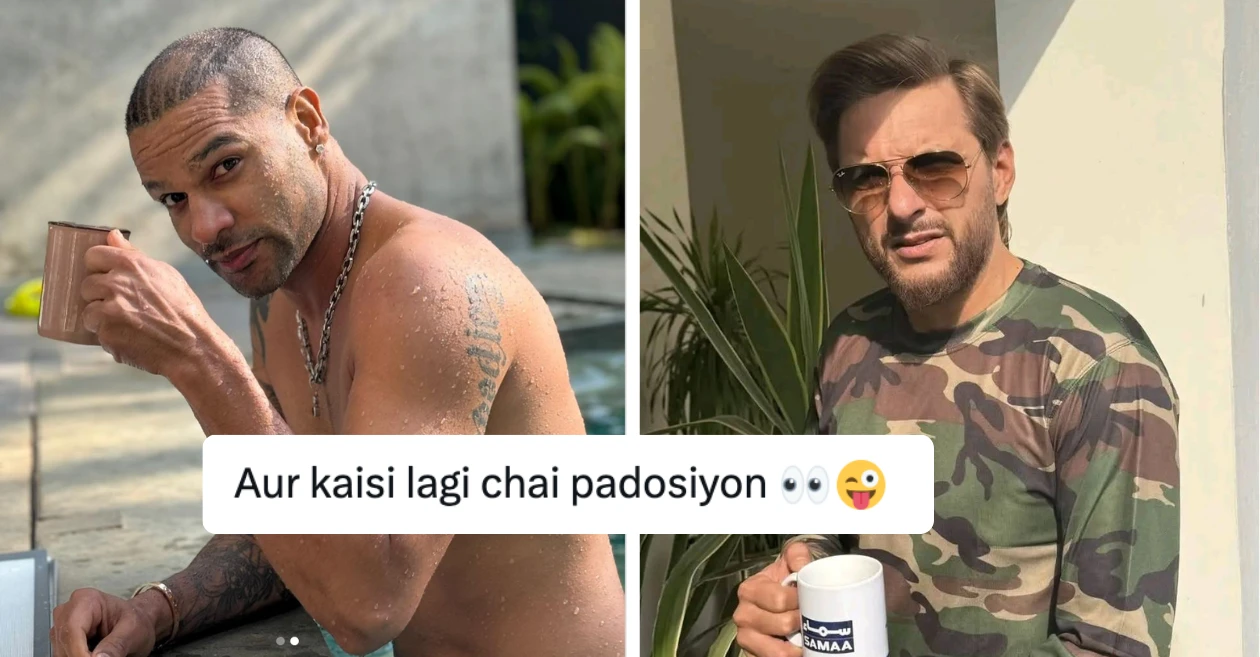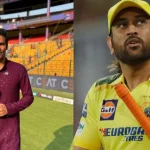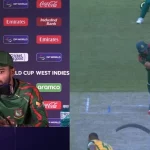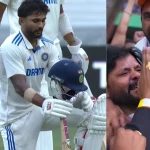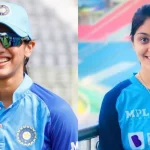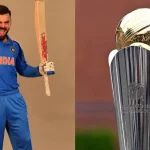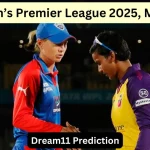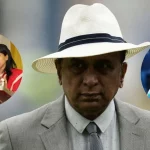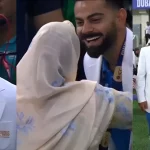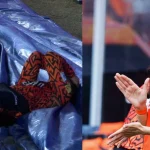The realm of social media has become a battleground where humor, banter, and serious discourse often intertwine, and nowhere is this more evident than in the high-stakes world of international relations, especially between neighboring countries like India and Pakistan. In the wake of a deadly terror attack in Pahalgam, Kashmir, and the subsequent military retaliation known as ‘Operation Sindoor,’ an innocuous image of former Indian cricketer Shikhar Dhawan sipping tea became a viral sensation, with a storm of online debate igniting across digital platforms. What began as a casual photo quickly spiraled into a highly charged geopolitical meme, making headlines globally.
This article delves into the viral sensation surrounding Shikhar Dhawan’s tea photo, exploring its origins, the online banter that followed, and the larger implications of the exchange within the context of the heightened tensions between India and Pakistan. Was Dhawan really trolling Pakistan? Or was there more to the story than meets the eye?
The Pahalgam Terror Attack and Operation Sindoor
Before delving into the social media skirmish, it is crucial to understand the backdrop against which this entire saga unfolded. The Pahalgam terror attack, which claimed the lives of several Indian soldiers, sent shockwaves throughout India. The attack was carried out by Pakistan-based terror groups, and the pain of the loss reverberated deeply within the national consciousness. In retaliation, India launched a decisive military operation known as ‘Operation Sindoor,’ aimed at neutralizing terrorist camps in Pakistan and Pakistan Occupied Kashmir (POK).
This operation was not only a military strike but also a potent political statement. The scale and precision of the operation garnered both domestic and international attention. It was clear that India was asserting its resolve against the growing threat of terrorism emanating from across the border, and the entire nation stood in support of the brave soldiers who carried out the mission. However, as is often the case in such charged situations, the digital realm quickly became a theater for both legitimate discussion and exaggerated, meme-fueled commentary.
Shahid Afridi’s Remarks and Dhawan’s Response
Into this volatile mix entered Shahid Afridi, the former Pakistani cricketer, whose remarks about the Indian Army and its alleged failures in preventing the Pahalgam attack stirred up controversy. Afridi, never one to shy away from expressing his opinions on issues involving India and Pakistan, took to social media to criticize India’s military actions, specifically targeting the Indian Army’s handling of the attack. His tweet pointed fingers at India’s security apparatus for failing to prevent the assault, a comment that did not sit well with many, especially among Indian sports personalities and netizens.
Shikhar Dhawan, the former Indian opener known for his on-field aggression and larger-than-life persona, responded swiftly to Afridi’s remarks. On social media, Dhawan reminded Afridi and his followers of India’s military triumphs in the past, including the Kargil War, where the Indian Army had decisively triumphed over Pakistan. He made it abundantly clear that he stood behind the Indian Army, declaring his unwavering pride in the nation’s armed forces.
This back-and-forth exchange, in which Afridi jived at Dhawan with his ‘tea invitation’ meme and Dhawan hit back with his patriotic posts, set the stage for what would later escalate into the viral phenomenon surrounding the ‘tea photo.’
The Viral Tea Photo: A Closer Look
Amidst the tensions, an image of Shikhar Dhawan sipping tea from a swimming pool began to circulate widely on social media platforms. The photo was shared with a provocative caption: “Aur kaisi lagi chai padosiyon?” (How was the tea, neighbors?), which many immediately interpreted as Dhawan’s cheeky response to the Pahalgam operation, and a pointed taunt at Pakistan. The image quickly gained momentum, amassing millions of views on platforms like Twitter (now X) and Instagram. The reaction was swift, with digital users taking to memes, comments, and retweets to declare their support for Dhawan’s implied message.
The meme became a vehicle for nationalist sentiment, with social media users seizing the opportunity to mock Pakistan and its military leadership. The seemingly casual photo of Dhawan enjoying his tea was now being read as a symbol of India’s military superiority, a clever and humorous retort to Afridi’s jibe and the events that had unfolded in the preceding days. For many, it seemed like a perfect storm of geopolitical banter wrapped up in a lighthearted, yet pointed, post.
The Misattribution: Fact-Checking the Viral Post
However, before anyone could get too carried away, the truth behind the viral image began to surface, dispelling the initial perception. Upon closer inspection, it was revealed that the image of Dhawan sipping tea had not been posted in response to ‘Operation Sindoor’ or Shahid Afridi’s comments. The original photo was shared by Dhawan months earlier, specifically on February 7, 2024. It was a completely unrelated post from an entirely different context, one in which Dhawan appeared to be enjoying a relaxing moment by the pool, far removed from the geopolitics that would later engulf the image.
The viral meme, with its “How was the tea, neighbors?” caption, was actually created by a parody account under the name ‘Shikkar Dhawen,’ which was not Dhawan’s verified profile. The account, operating under a similar name to Dhawan’s, had repurposed the older image and spun it into a commentary aimed at Pakistan, leveraging the tea meme as a lighthearted but pointed dig. As social media users and meme creators often do, they repurposed content for humor and political commentary, without any direct involvement from Dhawan himself.
Shikhar Dhawan’s Actual Response
While the tea photo was a case of mistaken identity, Dhawan did, in fact, address the critical situation surrounding ‘Operation Sindoor’ in his own words. Following the successful execution of the operation and the ensuing online banter, Dhawan posted a series of messages on his official social media accounts. In his posts, he unequivocally expressed his pride in India’s military, acknowledging the strength and resilience of the Indian Armed Forces in defending the country and stopping further attacks, such as the drone assault on Jammu.
In a tweet that gained widespread attention, Dhawan wrote, “India takes a stand against terrorism,” and further added, “Respect to our brave hearts for protecting our borders with such strength. India stands strong. Jai Hind.” These posts were reflective of Dhawan’s true sentiments, where he directly expressed support for the Indian military’s actions and framed his narrative around patriotism, rather than indulging in memes or indirect jabs.
The Role of Social Media in Geopolitical Narratives
The Shikhar Dhawan ‘tea incident’ serves as a compelling case study in the role of social media in shaping modern geopolitical narratives. What began as a lighthearted image was rapidly transformed into a symbol of larger political tensions. The misattribution of the image highlights the speed and virality with which content spreads in today’s connected world, often bypassing the traditional fact-checking mechanisms.
This incident also underscores the growing role of former sports personalities in shaping national discourse. In an era where public figures like Dhawan have massive online followings, every post, photo, and comment can become a focal point for broader political and social debates. Whether intentional or not, the image of Dhawan sipping tea became an iconic part of the digital landscape, showing how even innocuous moments can be politicized and turned into potent symbols.
The Bigger Picture
The viral ‘tea photo’ saga, while rooted in a moment of light-heartedness, reveals deeper insights into the intersection of sports, social media, and geopolitics. Shikhar Dhawan, a cricketer known for his cheerful demeanor, inadvertently found himself thrust into the heart of a social media storm, sparking debates over patriotism, humor, and the role of online discourse in shaping international relations.
While the initial reaction may have been fueled by nationalistic fervor, the fact-checking revealed a much more innocent origin for the photo, reminding us of the importance of verifying content in an age where misinformation spreads rapidly. Despite the playful banter surrounding the image, Dhawan’s real message was clear: his support for the Indian military was heartfelt and unwavering, far removed from the trolling and memes that dominated the digital conversation.
Ultimately, the Shikhar Dhawan ‘tea incident’ is a reminder that in the world of modern sports, celebrities are not just athletes but also key players in the shaping of public opinion and national discourse. Whether it’s through their performances on the field or their words and images shared online, they hold the power to influence, unite, and divide in ways that were unimaginable in the past. In the ever-evolving world of social media and global politics, Dhawan’s tea photo will likely remain a vivid example of how digital culture can intersect with real-world events, sometimes in surprising ways.
Please check for information on the best betting sites in India – https://selectory.org/best-betting-sites/
